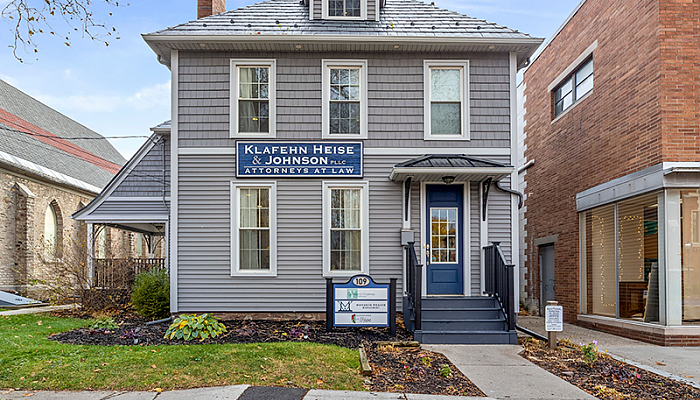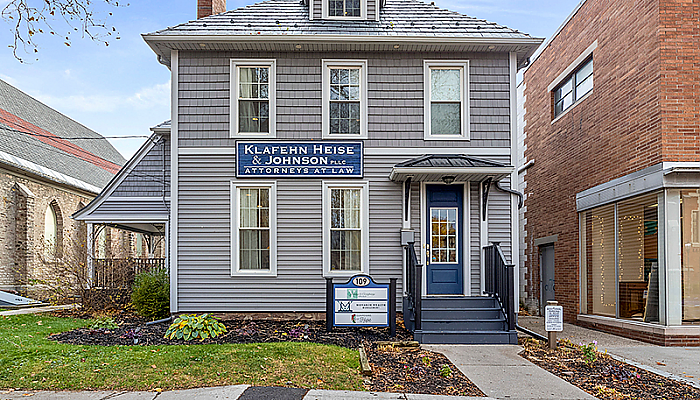What is Medicaid Planning and How Can It Benefit Seniors in Need of Long-Term Care?

As we age, the need for long-term care becomes a pressing concern for many seniors and their families. Long-term care, whether it's in-home care, assisted living, or nursing home care, can be costly and place a significant financial burden on individuals and their loved ones.
This is where Medicaid planning plays a vital role. In this article, we will explore what Medicaid planning entails and how it can benefit seniors in need of long-term care.
If you require specific legal advice, we recommend consulting with an attorney, such as Kevin Johnson, at Klafehn, Heise & Johnson PLLC. Contact our office at 585.637.3911 or reach out to us online to learn more.
Understanding Medicaid Planning
Medicaid planning is a legal strategy designed to protect assets and ensure eligibility for Medicaid benefits while addressing the costs of long-term care. Medicaid is a joint federal and state program that provides healthcare coverage to individuals with limited income and resources. Unlike Medicare, which primarily covers acute medical care for seniors, Medicaid covers long-term care services.
Benefits of Medicaid Planning for Seniors
- Asset Protection
Medicaid planning allows seniors to protect their assets from being entirely depleted by long-term care expenses. By employing various legal strategies, such as establishing trusts, transferring assets, or converting assets into exempt forms, seniors can preserve their savings and property for themselves and their families. - Eligibility Planning
Medicaid has strict income and asset limits that applicants must meet to qualify for benefits. Medicaid planning helps seniors structure their financial affairs in a way that meets these requirements while ensuring they have the necessary funds for their care needs. This can involve converting countable assets into exempt assets and maximizing income planning strategies. - Coverage for Long-Term Care
Medicaid is the primary payer for long-term care services. By engaging in Medicaid planning, seniors can access the financial support needed to cover the costs of nursing home care, in-home care, assisted living facilities, and other long-term care options. - Preserving the Family Home
For many seniors, the family home holds sentimental value and represents a significant asset. Medicaid planning can help protect the family home from being sold to cover long-term care expenses. Strategies like transferring ownership or establishing certain types of trusts can help preserve the family home while still qualifying for Medicaid benefits. - Peace of Mind for Families
Long-term care costs can quickly deplete a senior's life savings, leaving their loved ones burdened with financial responsibilities. Medicaid planning offers peace of mind to families by alleviating the financial stress associated with long-term care, allowing them to focus on providing emotional support and care for their aging loved ones.
Medicaid planning is a vital tool for seniors in need of long-term care. It offers asset protection, eligibility planning, access to long-term care coverage, and peace of mind for families. However, Medicaid planning is a complex legal process that requires careful consideration and experience.
To ensure you make informed decisions and navigate the intricacies of Medicaid planning successfully, it is crucial to consult with an experienced attorney, such as Kevin Johnson at Klafehn, Heise & Johnson PLLC. Contact our office at 585.637.3911 or reach out to us online to get more information and personalized guidance.
Legal Disclaimer: This article provides general information about legal strategies in Medicaid planning to ensure long-term care needs are met without depleting assets. It should not be construed as legal advice or a substitute for consulting with an attorney. Each individual's situation is unique, and laws can vary from state to state. For specific legal advice and guidance tailored to your circumstances, consult with the attorneys at Klafehn, Heise & Johnson PLLC in Brockport, NY. You can contact us here. Portions of this account are considered ATTORNEY ADVERTISING under the New York State Unified Court System Rules of Professional Conduct (22 NYCRR Part 1200). Prior results do not guarantee a similar outcome.
‹ Back













